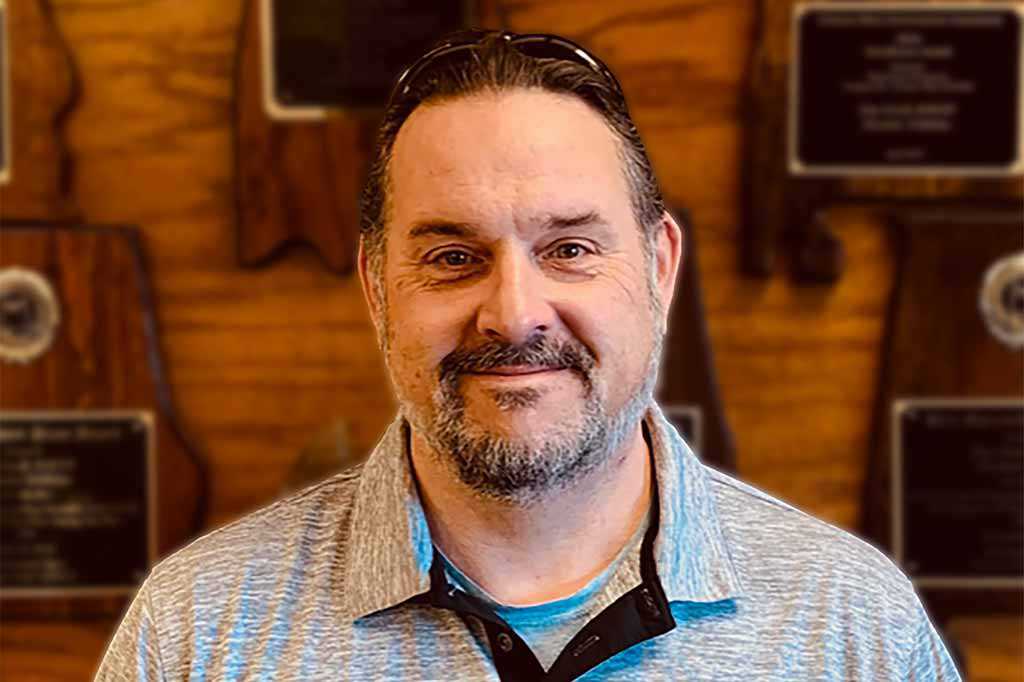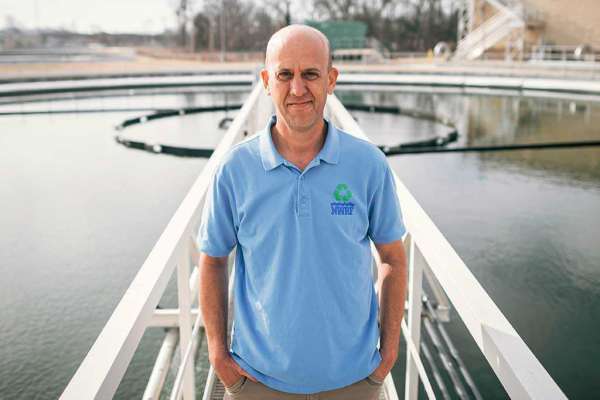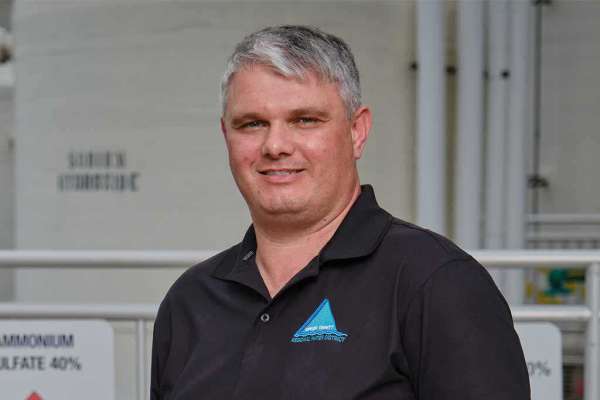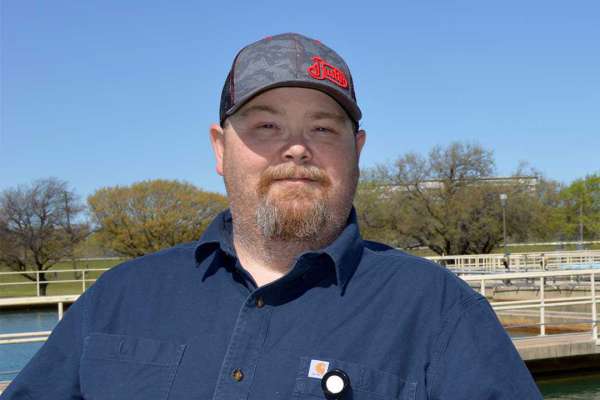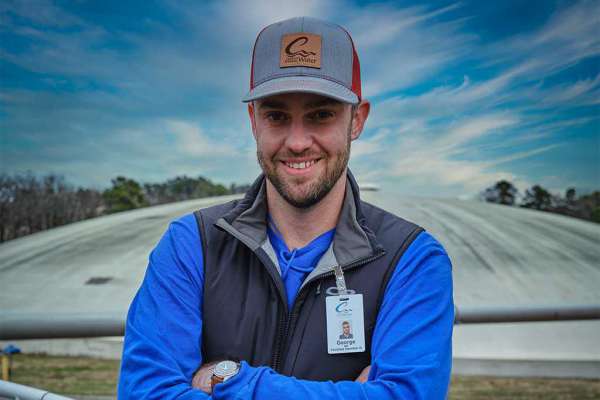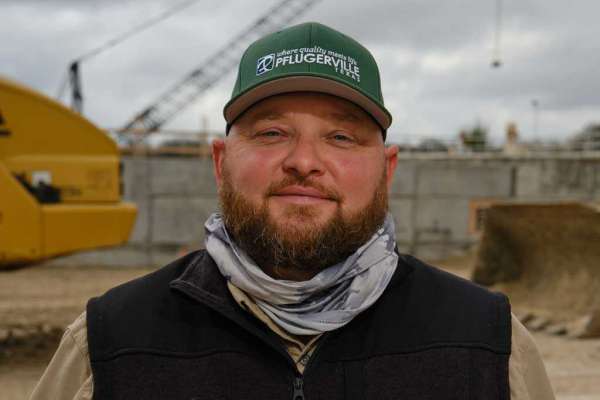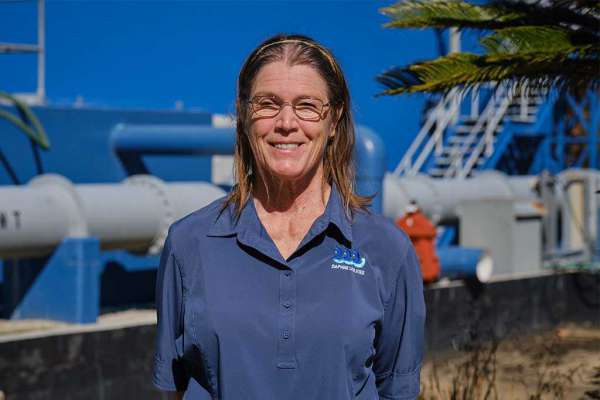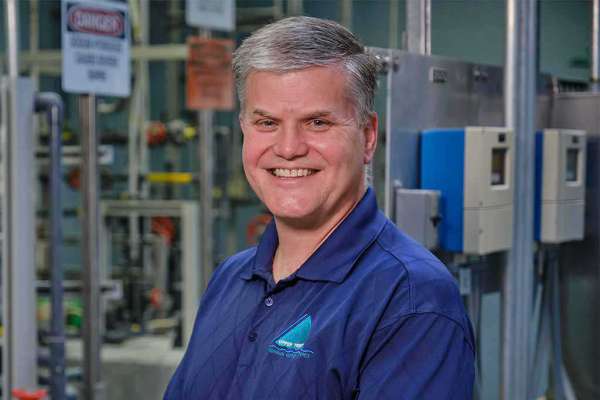Thanks to the behind-the-scenes efforts of water and wastewater operators across the country, clean, safe water continued flowing – even amid a global pandemic. Garver launched the Behind-the-Scenes Operators Initiative to give an inside look at what it takes to supply our communities with reliable water services.
Supporting a team and a community
Shannon Bailey has been a wastewater operator for 17 years and worked his way up to being a Grade 4 operator, running one of the largest wastewater plants in the state of Alabama. Having taken an interest in the processes and mechanics of treatment plants, he initially began his career as a maintenance mechanic, working his way up within the plant. Over time, Shannon learned more about the processes and took the initiative to spend his time off in the plant’s lab, learning about the chemistry behind wastewater treatment.
These days, Shannon is the superintendent for Decatur’s Dry Creek Plant, working with operators and maintenance crews to keep the plant in top shape. He wears several hats as the supervisor, doing everything from reviewing paperwork and checking weekly water samples to managing operator shifts and maintaining water quality compliance. Whenever a problem arises, Shannon is the first one there and the last to leave.
Every day he walks the plant to make sure his staff has everything they need, even educating and assisting young operators and mechanics to improve their skills. Shannon knows that if he provides his staff with what they need, then they’ll provide the quality service the community needs.
The Dry Creek Plant also faces some unique challenges. Unlike most wastewater plants that are located on the outskirts of a community, this plant sits along the Tennessee River next to a city-owned event center and across from an elementary school. So, odor control is something he takes very seriously. In addition, the plant handles a greater amount of industrial waste than the average treatment plant due to the community’s large industrial presence. An increase in industrial waste means monitoring the flows more often than average, hourly. Despite those challenges, Shannon and his team have run the plant so well, that they’ve won the AWPCA/AWWA Plant Excellence Award for their plant’s size three years in a row.
And the pandemic hasn’t slowed them down either. While they’ve noticed an increase in disposable gloves, wipes, and masks coming through flow into the plant, which can cause clogs and stoppages in pumps, they’ve handled them quickly and efficiently to prevent interruptions to service. Additionally, COVID has increased the time it takes Shannon’s team to receive necessary parts for plant equipment. As a result, his mechanics have been instrumental to make sure equipment is properly maintained.
They’ve also taken it as an opportunity to learn and use new methods of communication and teamwork. Using programs like Microsoft Teams has helped them maintain collaborative and open teamwork, which is essential to the success of any treatment plant. As part of their increased use of web-based platforms, Shannon has encouraged his team to continue their education during the pandemic by taking online and web-based classes and webinars.
Shannon constantly tries to improve not only the plant but himself, working on finishing his degree during the pandemic while also keeping his staff safe, supported, and encouraged. He knows that this job requires constant education to stay ahead of changing water quality requirements, new technology, and growing populations.
“It’s a licensed job, not just one and done,” he says. When asked what he wants the public to know about his job and team, he responded, “There’s a lot of dedicated operators and mechanics, utility employees, all working hard to make sure that when you flush a toilet the water is safely taken care of, when you turn on a tap that the water is safe to drink. And we do it because we love what we do.”

